Herndon’s Laura Ratcliffe: A “Very Active and Cunning Rebel”
It is generally an accepted practice of militaries around the world to not tell the enemy what you plan to do. It’s also a good idea to avoid passing secrets to enemy spies, especially if you know they are enemy spies. Apparently, however, Union troops stationed in Herndon, Virginia didn’t get the memo. Either that or they were too mesmerized by local belle Laura Ratcliffe to think straight. She was a smooth operator to be sure.
In February 1863, Confederate Colonel John S. Mosby was riding with his soldiers near Ratcliffe’s home scouting the enemy position and hoping to best whatever Union troops came his way. Mosby had wreaked havoc on the Yankees before but this time they were ready for him. They set up a picket on Centreville Road near Frying Pan Church and then hid a much larger force in the woods around it, hoping draw the Gray Ghost into an ambush.
By this point in the war, it was well known that Ratcliffe was a “very active and cunning rebel” who worked closely with Mosby and J.E.B. Stuart. Starting as a nurse, she soon became a spy and transported money and documents in a false-bottomed egg basket. At various points during the war Confederates used her house as a headquarters and for temporary storage of confiscated Union goods. Union investigators knew Ratcliffe was up to something and repeatedly searched the farm but were never able to find anything. Like we said, she was a smooth operator.
The fact that Union soldiers knew that Ratcliffe was a Confederate sympathizer and friend of Mosby makes what came next pretty surprising – or not, depending on the way you look at it. Thinking that the ambush plan was air-tight, a young Union soldier boasted about it to Ratcliffe in attempt to impress her, reasoning that she didn’t have time to inform Mosby because the mud was too deep for a woman to navigate in a hoop skirt.
Bad move, buddy. Join the long list of pompous males who have underestimated women throughout history. And – just a heads up – telling someone that her friend will “be either dead or a prisoner” by morning is not a good way to attract a lady.
Ratcliffe wasn’t about to let a little thing like mud stop her. Upon learning the news, she trudged through the muck to inform neighbors in hopes that someone might be able to get word to Mosby. As luck would have it, Mosby actually rode by while Ratcliffe made her rounds and she was able to tell him about the ambush plot, personally.
In his memoirs, Mosby credited Ratcliffe with saving his life.
We then proceeded on toward Frying Pan where I heard that a cavalry picket was stationed and waiting for me to come after them….When I got within a mile of it and had stopped for a few minutes to make my disposition for attack, I observed two ladies walking rapidly toward me. One was Miss Laura Ratcliffe, a young lady to whom Stuart had introduced me a few weeks before, when returning from his raid on Dumfries, with her sister. Their home was near Frying Pan, and they had got information of a plan to capture me, and were just going to the house of a citizen to get him to put me on my guard, where fortune brought them across my path.
But for meeting them, my life as a partisan would have closed that day. There was a cavalry post in sight at Frying Pan, but near there, in the pines, a large body of cavalry had been concealed. It was expected that I would attack the picket, but that my momentary triumph would be like the fabled Dead Sea’s fruit, ashes to the taste, as the party in the pines would pounce from their hiding-place upon me.
So it turns out loose lips really do sink ships. Or allow rebellious cavalry officers to escape. You know, whatever.
Sources:
Frank, Lisa T., ed. Women in the American Civil War. ABC-CLIO, Inc.: 2008.
Mauro, Charles V. “Herndon-area woman saves Mosby.” The Washington Times, 8 September 2007.


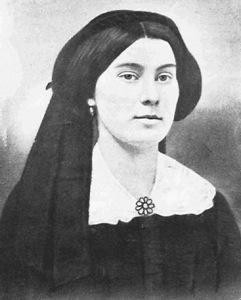
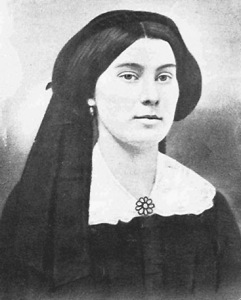
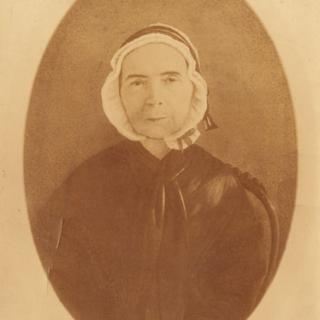
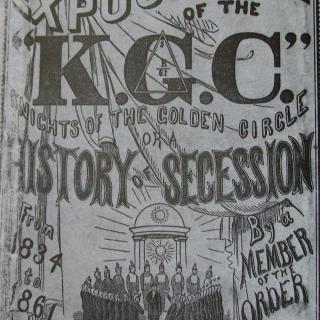
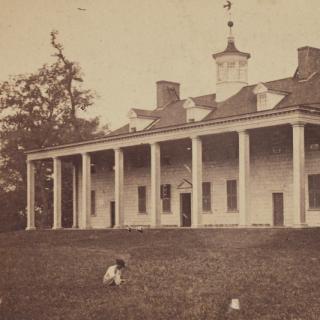
![Sketch of the mythical fuan by Pearson Scott Foresman. [Source: Wikipedia]](/sites/default/files/styles/crop_320x320/public/2023-10/Goatman_Wikipedia_Faun_2_%28PSF%29.png?h=64a074ff&itok=C9Qh-PE1)












